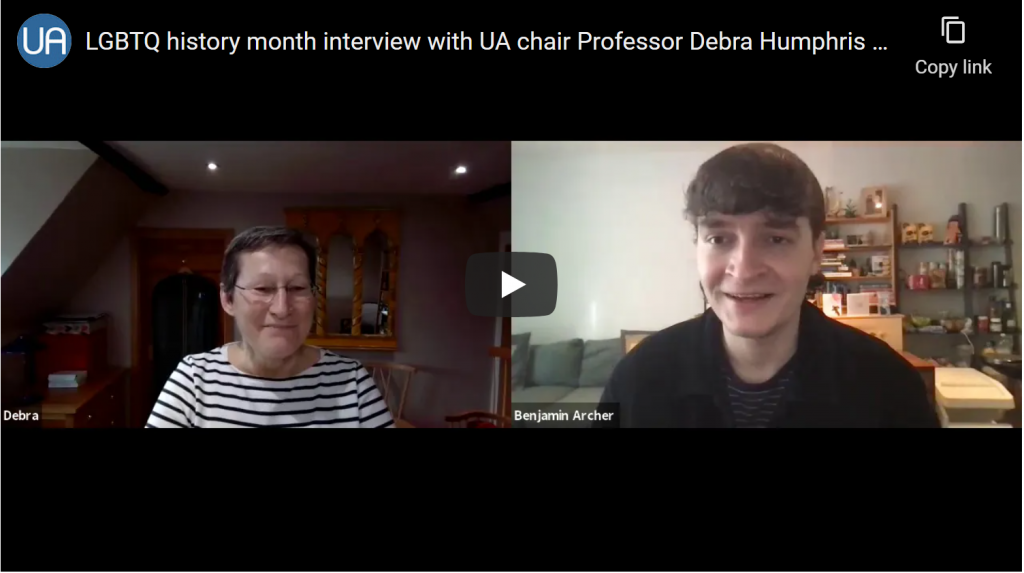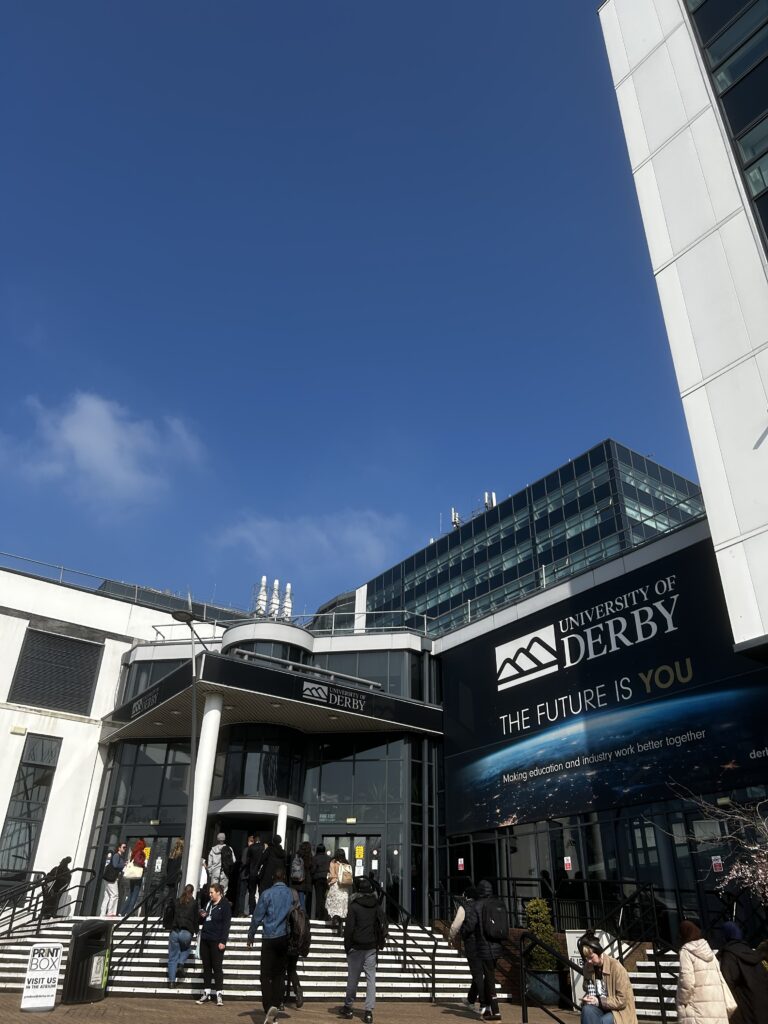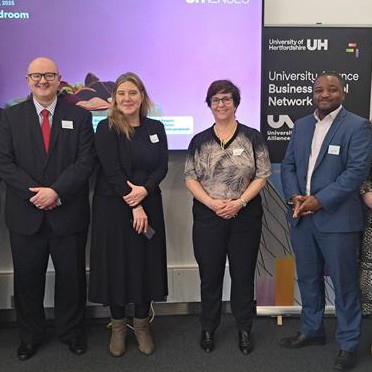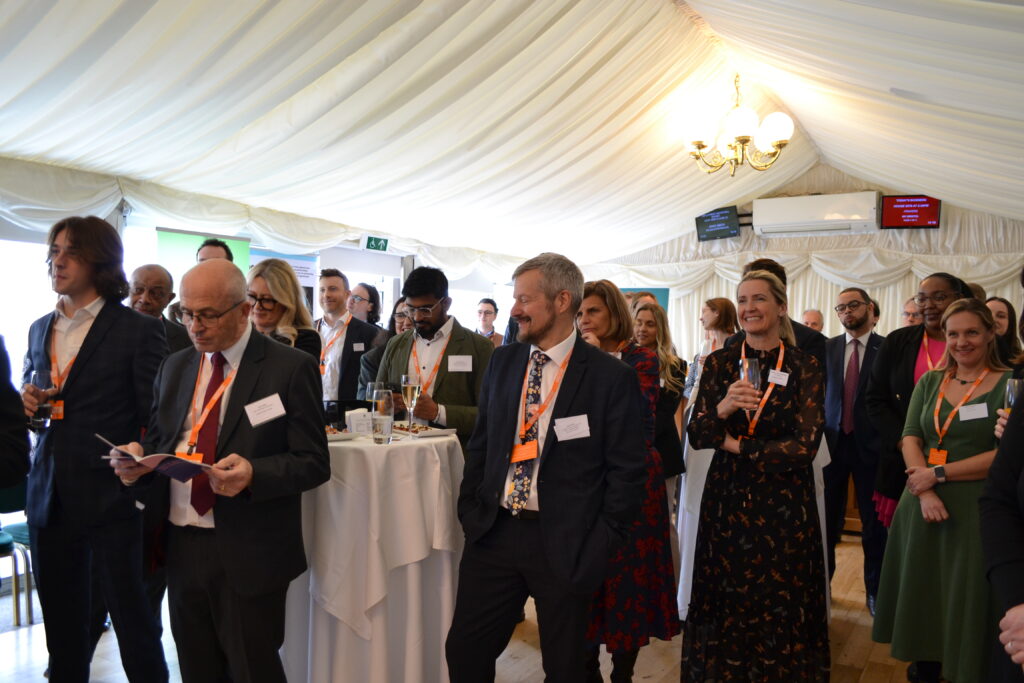University Alliance (UA) have this week launched a new network for LGBTQ+ postgraduate researchers (PGR’s) studying as part of UA’s Doctoral Training Alliance (DTA) programme.
The group aims to bring together researchers who identify as part of the community, to create a supportive peer environment for socialising, enabling academic research connections and to tackle the adverse effects of pandemic isolation within the postgraduate researcher community.
To celebrate the launch, DTA PhD researcher and the group’s coordinator Benjamin Archer was joined by University Alliance Chair Professor Debra Humphris for a recorded ‘in conversation with’ talk. The video interview is being shared online as part of UA’s activity for LGBTQ+ history month.
Professor Debra Humphris is Chair of University Alliance, Vice Chancellor of the University of Brighton and one of the few openly LGBTQ+ leaders in the higher education sector. During their conversation, they discussed the importance of having inclusive networks and safe spaces for LGBTQ+ academics, the work that Alliance universities are doing to improve equality and diversity within their institutions, and their personal experiences of being openly LGBTQ+ within the university context.
They also discussed the role University Alliance has in promoting this for other marginalised groups in the sector, such as people of colour, working class individuals, and those with disabilities; given the importance of visible representation.
Benjamin said: “Representation from individuals within these communities is something that I feel is vitally important in academia, so I am incredibly grateful to have had the opportunity to speak with Professor Debra Humphris last week, and discuss her experiences as a prominent academic who identifies as part of the LGBTQ+ community. University Alliance and the DTA provides incomparable support for its postgraduate research students, which is only enhanced through the creation of the LGBTQ+ group.”
Emphasising the importance of networks and a sense of community and collaboration within Alliance universities, Debra said: “I am proud that as an openly LGBTQ+ leader, I am also Chair of a group of universities that is putting equality, diversity and inclusion at the heart of our mission. As leaders we have a responsibility to create conditions in our institutions to support individuals to be their most authentic selves. Whilst across the Alliance we have a strong record on and a real commitment to diversity and inclusion, this work is a continuous journey and we should always be striving to do more. I am pleased that networks, like the LGBTQ+ that DTA are running, will create inclusive spaces and be driven by the power and energy of those within them to generate wider change in our institutions.”
This is just one of the networks created by the DTA during the pandemic. The DTA Team support researchers to coordinate these groups themselves via WhatsApp groups and virtual gatherings. Others that have been set up are dedicated to Women in Research, Parents, BAME and researchers Living alone in lockdown.
Facilitating networks for member universities to come together and engage on common issues and problem solving is a core characteristic of University Alliance’s mission. The organisation has over 30 networks available for academic and professional staff, enabling members to share and showcase their expertise and innovation, and meet with external stakeholders, speakers and decision makers. They provide an important space for individuals in the Alliance to work together to unlock potential and effect change within their universities.




